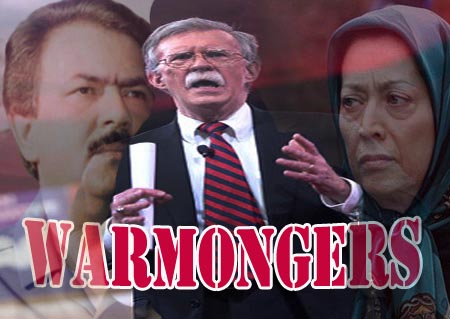Re-reading part of John Bolton’s op-ed calling for war with Iran, I noticed something that I had overlooked the first time:
An attack need not destroy all of Iran’s nuclear infrastructure, but by breaking key links in the nuclear-fuel cycle, it could set back its program by three to five years. The United States could do a thorough job of destruction, but Israel alone can do what’s necessary. Such action should be combined with vigorous American support for Iran’s opposition, aimed at regime change in Tehran [bold mine-DL].
Peter Beinart objects to Bolton’s op-ed in part because Bolton, who was a leading advocate for the invasion of Iraq, pays no attention to the possible negative consequences of a war with Iran. That’s a fair point. Hawks frequently ignore or minimize the costs and risks of the military action they’re urging the government to take, they exaggerate the efficacy of hard power to “solve” problems, and they often fail to anticipate or plan for unintended consequences of the wars they support. These are all good reasons to view any hawkish argument for war very skeptically, especially when it comes from someone with such an appalling track record. There is another reason to view anything Bolton has to say about Iran in particular with great suspicion.
Bolton is hardly the only former official, retired officer, or ex-politician to do this, but for the last several years he has been a vocal cheerleader of the Mujahideen-e Khalq cult (and “former” terrorist group) and its political organization. He has been consistently misrepresenting a totalitarian cult as a “democratic” Iranian opposition group. When Bolton or someone else with this record talks about “vigorous American support for Iran’s opposition,” we can be fairly sure that he means that the U.S. should be backing the MEK in its quest for seizing power in Iran.
This confirms Bolton’s extremely poor judgment and underscores how truly crazy his overall argument for war with Iran is. It also reminds us how oblivious Iran hawks such as Bolton are to the political realities inside Iran. Once again we have a hawkish demand for U.S. support for an exile group that has absolutely no support in its own country in order to achieve regime change. Indeed, the group that Bolton has been helping to promote is widely loathed in Iran for good reason and has no credibility at all with the domestic political opposition. It is Bolton’s embrace of the MEK as much as anything else that ought to discredit his views on Iran policy.
By Daniel Larison



